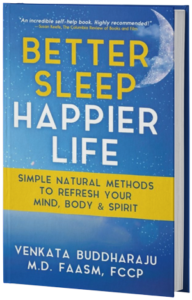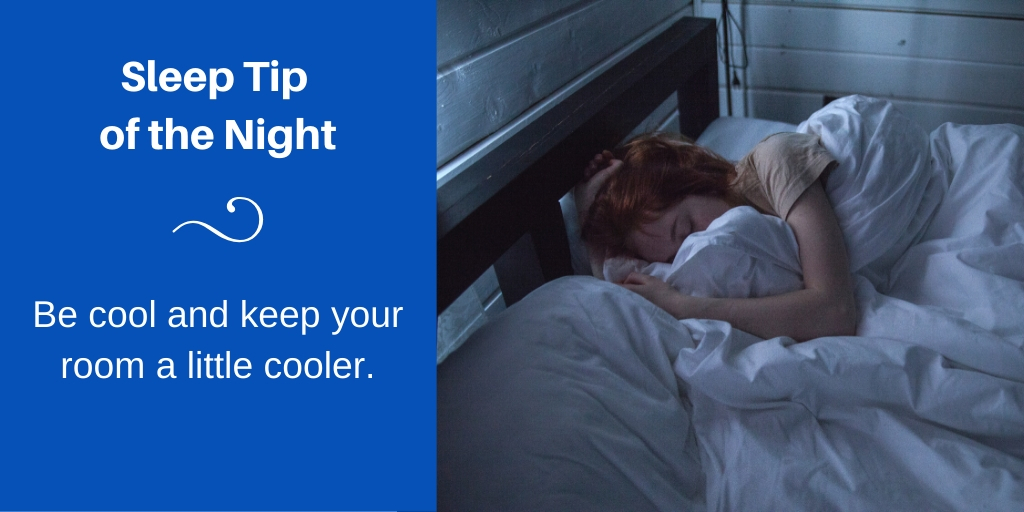
Exercise
Moderate aerobic exercise helps us fall into a deeper sleep faster and improves blood flow to the brain, building the neural network and improving cognitive abilities. Exercise causes the brain to release endorphins, a neurotransmitter that makes you feel happy. As a result, working out for thirty to fifty minutes a day in the morning improves focus and able to handle stress better.
Aerobic exercise for 150 minutes a week reduces cognitive decline and improves neuronal function in Alzheimer’s patients, likely because the brain releases serotonin, another neurotransmitter that improves neural connections.
Exercise also increases total sleep time, slow wave (deep) sleep, and REM sleep—all of which support the sleep restoration process. Some of the other general health benefits of exercise are a reduced risk of stroke, heart attack, diabetes, and hypertension.
Timing of Exercise
Do daily aerobic exercise for 30-50 minutes such as brisk walking, jogging, and running in the morning helps also to expose to sunlight which helps to synch with circadian clock. Studies have also shown that morning exercise helps to lose weight.

Eat The Correct
Diet
There is strong scientific data supporting the notion that our sleep patterns and sleep duration influence our eating behavior. Sleep deficiencies are associated with increased hunger for high-calorie and high-carbohydrate foods, which may lead to weight gain and even obesity. Diets that can help sleep initiation and maintenance contain high amounts of melatonin and serotonin. Diets that reduce serotonin levels can cause insomnia.
Sleep-encouraging Recipes and Practices
Blue or black berries, almonds, walnuts, cherries, and kiwi fruits can encourage sleep onset and improve sleep duration and quality. These nuts and fruits have a high concentration of the amino acid tryptophan, which converts into sleep-promoting melatonin and serotonin—neurotransmitters that encourage and improve sleep.

Manage
Stress
Stress can be acute or chronic. Acute stresses are short lived, our mind and body reacts, responds and adapts, and life goes on. On the other hand, chronic stress results from ongoing stressful events that go on for a longer period of time and can affect our physical and mental health.
When we spend too much time worrying, called rumination, our sleep can be disturbed. Worry causes frequent awakening, especially in the early morning hours. Poor quality sleep then results in daytime tiredness and irritability. It becomes a vicious, unhealthy cycle. Therefore, we must learn coping strategies to combat stress and maintain balance in our lives.
Meditation
Meditative practice improves memory, and mental calmness and brings homeostasis to the mind and body. Select the place and posture that best suits you—in a chair, on the floor, or in nature. Focus on the breath coming and going from your nostrils. Every time you complete one deep inhalation and exhalation, count one. Don’t judge thoughts that come to mind. Just watch them as a spectator. After a while, your mind will reach a steady state, like calm waters on a lake. That’s where your true nature lives. Combining breaths and body movements activates the breathing circuit and vagal nerve. In turn, the parasympathetic nerve fibers counteract the sympathetic overdrive of stress response, calming and slowing the heart. Meditation is safe and is practiced in many parts of the world to overcome suffering, stress, and life’s burdens.

Manage Your
TIME
It’s important to make memories with the people we care about and who care about and love us. I have heard of people who work nonstop until a crisis hits. Then, they regret not spending more time with family and friends. Workplace burnout is described by the World Health Organization as chronic workplace stress that has not been successfully managed. It can occur in any workplace. Focus on the projects that bring the most joy and happiness, control your time, and prioritize jobs.
It’s important to prioritize time because we still need to get optimal 7 hours of sleep to be happy and healthy, stay focused on what we do at work. Any time we work longer hours or spending time on tech devices or anything else that goes beyond the norm, and then we naturally encroach into what is supposed to be our sleep time. It’s counterproductive if we are in a constant sleep debt and sleep deprived with all the negative consequences
Remove unnecessary distractions from your daily routine , spend valuable and quality time for yourself on your life goals and with your family and friends to get back into that human connection to feel happy and reduce stress levels.

Listen To
Music
Scientific research shows that music can be used to improve sleep quality. Listening to your favorite music activates emotional reactions and releases hormones that promote sleep and happiness. By improving mood and reducing stress and anxiety, music promotes relaxation and, thereby, sleep quality. The more regularly you listen to music, the longer the beneficial effects on sleep. Music has also been shown to reduce symptoms of pain from medical conditions such as fibromyalgia and postoperative pain, which can be associated with poor sleep quality.

Spend Time In
Nature
Nature calms down the mind and brings peace. My own personal experience is that after spending time in nature, my mind is calmer, and I am more relaxed and peaceful.
Take nature walks and be connected with nature rather than spending time on the device screens. Nature assists the human mind and body in its attempts to deal with stress. You can walk, run outdoors, meditate, or do yoga outside, or just sit under a tree or in a park or garden for relaxation. Yes, connecting with nature can lead to better sleep and an overall happier life.








